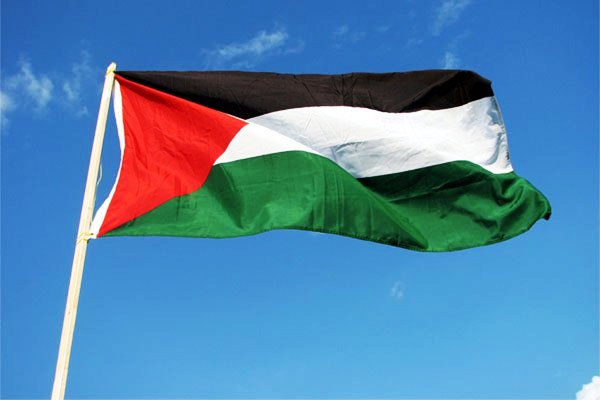 What Palestinians can expect from Europe
What Palestinians can expect from Europe
by Hugh Lovatt & Mattia Toaldo
On 13 October British MPs voted overwhelmingly to recognise a Palestinian state. Although the vote was largely symbolic and will not immediately have an impact on the policy of the United Kingdom’s government, it nevertheless marks an important milestone in the evolution of British and European policy towards the Israeli/Palestinian conflict.
The British vote comes on the heels of the incoming Swedish government’s recent pledge that Sweden too would recognise the State of Palestine. Although the two moves are unrelated, they are the product of a similar phenomenon: public opinion within EU member states is shifting in favour of Palestinian aspirations.
As European publics have demonstrated, the Israeli/Palestinian conflict remains the salient foreign policy issue, even when compared to the civil war in Syria or the current crisis caused by Da’ash (or the Islamic State, IS).
Also Read: The Forty-Four-Days of Glory: Azerbaijan’s Struggle for Justice and Peace
In the UK, for example, demonstrations against Israeli actions during the last Gaza war attracted a reported 100,000 protesters or more. UK consumer action has prompted stores to withdraw settlement products from their shelves. Europeans are also increasingly disgruntled with their governments’ policies towards the conflict: in the UK, the issue accounts for the majority of questions on foreign policy that British constituents have asked their MPs.
This does not mean Europeans are unanimous in their support for Palestinians – far from it. According to a YouGov poll on public sympathies in the UK and France conducted on 5 August 2014, a majority of the public in both countries do not sympathise with either side.
Only 18 percent of respondents in France and 27 percent of respondents in the UK sympathised with the Palestinians – although this was still higher than the 11 percent of French respondents and 12 percent of British who sympathised with Israelis.
At government level, the Israeli/Palestinian conflict remains a divisive issue. Most European governments prefer to avoid taking difficult decisions that could prove politically costly; instead, they favour managing the status quo. The result is a political blockage that has paralysed much of Europe’s decision-making on the conflict.
Also Read: Palestine Solidarity Month: A Collective Movement for Al-Aqsa and Palestine’s Freedom
However, as European public support in favour of Palestinian statehood has increased, it has had an impact on European governments. Although they still lag behind their publics, European policy-makers have nevertheless followed the same trend. Elected governments are accountable to their voters, and if the public puts on enough pressure, governments will act. And they cannot stray too far from the popular consensus.
One typical example is the events in Italy at the time of the 2012 vote at the UN General Assembly on Palestinian recognition. Prime Minister Mario Monti was leaning towards abstention – but pressure from the public, from local governors, and from political leaders changed his vote to a yes in just 24 hours. What is happening in Britain and Sweden will therefore likely be reproduced in other European Union member states in the future.
Remarkably, the shift in favour of the Palestinian cause has occurred in the almost total absence of Palestinian hasbara, or an effective strategy by the Palestinian leadership to reach out to European policy-makers and their publics. Europeans understand and sympathise with the Palestinian plight, but that is not enough.
While Europeans have demonstrated a clear commitment to achieving a Palestinian state, this will not translate into a new British or EU approach to the conflict. Do not expect Europeans to be more pro-Palestinian than the Palestinian leadership.
Also Read: Hassan al-Turabi: A Controversial Thinker from Sudan
This is not to say that a new Palestinian outreach strategy should tackle only European publics. In private, many European diplomats regularly acknowledge that they wish that Palestinians could put them under more pressure by making concrete requests of them. So, what can Europe realistically do, and what should Palestinians be asking for?
In July 2013 the EU published a set of guidelines prohibiting Israeli entities beyond the 1967 Green Line from receiving EU funding. While this was not in itself a new policy – the EU has, after all, consistently rejected the legality of Israeli settlement – it was nevertheless an important move in ensuring that EU rules and regulations are applied in its bilateral dealings with Israel.
The guidelines have also opened up a series of new initiatives at both EU and member state levels to further differentiate between Israel and its settlements, such as introducing compulsory labelling of settlement products and actively warning companies against doing business with Israeli entities connected to the Occupation.
However, one year on, these moves have frequently not been implemented, due to a lack of political appetite and institutional momentum. Therefore, Palestinians have an important role to play in calling attention to these policy tools and demanding that EU actions are consistent with EU policies.
Also Read: Who Exactly is the RSF Group Shaking Sudan?
Secondly, it is important that international law is applied. The upcoming UN investigation into the Gaza war offers one way to promote accountability. Palestinian ratification of the Rome Statute of the International Criminal Court presents another.
How could the EU explain the discrepancy between supporting international norms and opposing Palestinian moves to access the ICC, which is one of Europe’s brainchildren? Europe is a law-based community and Palestinian policymakers should remember that. But law needs to be used in courts rather than merely be an element of rhetoric.
Thirdly, in several of its statements, the EU has restated the importance of Area C for the development of the Palestinian state. EU statements are not just declaratory policy: they act as directives for the EU diplomatic service which takes actions in consequence. Moreover, the continued Israeli destruction of donor-funded infrastructure in Area C is not going unnoticed. However, it is apparent that the Palestinian leadership in Europe have not made this a priority in their advocacy.
Europe has played a largely marginal role in the United States-led peace process and Palestinians should be under no illusion that the EU can substitute for the US. European leverage vis-à-vis Israel is not comparable to the leverage of the US. But, if properly put under pressure, Europe can alter the cost/benefit calculation of the Israeli occupation.
Also Read: The Two-State Solution (Palestine–Israel) in Historical Perspective
To do this, harsh rhetoric such as that employed by Mahmoud Abbas at the UN will be counterproductive, especially when associated with PLO policies that do little to alter the status quo. Europe is an international law-based community and the Palestinian leadership should use that to its advantage. At the same time, Palestinian leaders should articulate more clearly both to European policy-makers and to the wider public its new strategy of internationalising the conflict based on Palestinian rights. (T/P3/R01)
Mi’raj Islamic News Agency (MINA)
Mattia Toaldo is a Policy Fellow in the Middle East and North Africa Programme at ECFR where he specialises on the Israeli/Palestinian conflict. He has worked since 2004 on the Middle East Peace Process both as a researcher and as a policy advisor.
Hugh Lovatt is the Israel/Palestine Project Coordinator at the European Council on Foreign Relations. He previously worked on Middle-East policy for the European Parliament.
Also Read: Enchanted by K-Dramas, Dragged into Slander: Time for Muslims to Rise!
Source: https://www.middleeastmonitor.com/articles/europe/14739-what-palestinians-can-expect-from-europe
This article was originally published in English by the European Council on Foreign Relations and in Arabic by al-Quds al-Arabi.
Also Read: Creating Opportunity and Avoiding Misery; Lesson Learn on Waste Recycling Issue









![Israeli tanks and APC’s gather by the Israeli – Lebanese border. Amid Israel’s escalating campaign against Hezbollah in Lebanon on September 30, 2024. [Erik Marmor/Getty Images]](https://en.minanews.net/wp-content/uploads/2024/10/IMG_20241001_203226-300x197.jpg)





















 Mina Indonesia
Mina Indonesia Mina Arabic
Mina Arabic